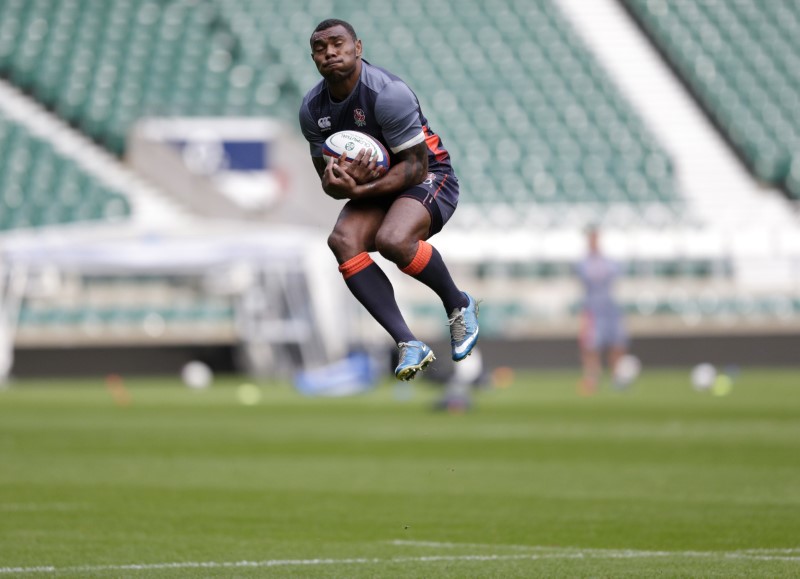By Mitch Phillips
LONDON (Reuters) - Two Fijians playing at Twickenham this Saturday will each earn 22,000 pounds for their efforts while 23 others from the Pacific island nation will pocket just 400 pounds.
The vast gulf between rugby's richest and poorest is being brought into sharp focus on the sport's biggest stage.
Fiji-born Semesa Rokoduguni starts on the wing and Nathan Hughes is among the replacements - for England - having switched national allegiance. Their reward is a healthy match fee, negotiated between the England players' union and England's rugby governing body.
Their compatriots who represent Fiji on the field get the far smaller match fee - less than 2 percent of what England players get - and around 60 pounds-a-day during their November European tour. Even that is a struggle for their impoverished Union.
England's Rugby Football Union (RFU), the biggest and richest governing body in the sport, rakes in around 10 million pounds every time it hosts a match at the 82,000-capacity Twickenham Stadium in south-west London.
Rules of the global World Rugby governing body allow the home nation to keep all the profits from a match. The RFU says it has made a "goodwill payment" of 75,000 pounds after Fiji officials requested double that.
When asked about the situation at the World Rugby Conference in London earlier this week, RFU CEO Ian Ritchie said: "It is not England’s responsibility to help fund world rugby.
"This was a conservation I had with Fiji back in May-June. We have absolutely no obligation to do anything, but we had discussions on an appropriate contribution and we agreed to it.
"I had a note from them saying, ‘We are delighted. Thank you very much for the kind contribution.’"
Ritchie said funding Fiji rugby was a matter for Fiji and Word Rugby.
Hundreds of players from Fiji, Tonga and Samoa - where there is no professional rugby - ply their trade for clubs in Europe, Australia and New Zealand and dozens of them eventually switch nationality, which they are allowed to do under a three-year residency rule.

Fiji won the Olympic Rugby Sevens gold medal at the Rio Olympics this year - their country's first-ever Olympic medal - but the player drain severely limits their attempt to punch their weight in the 15-a-side game.